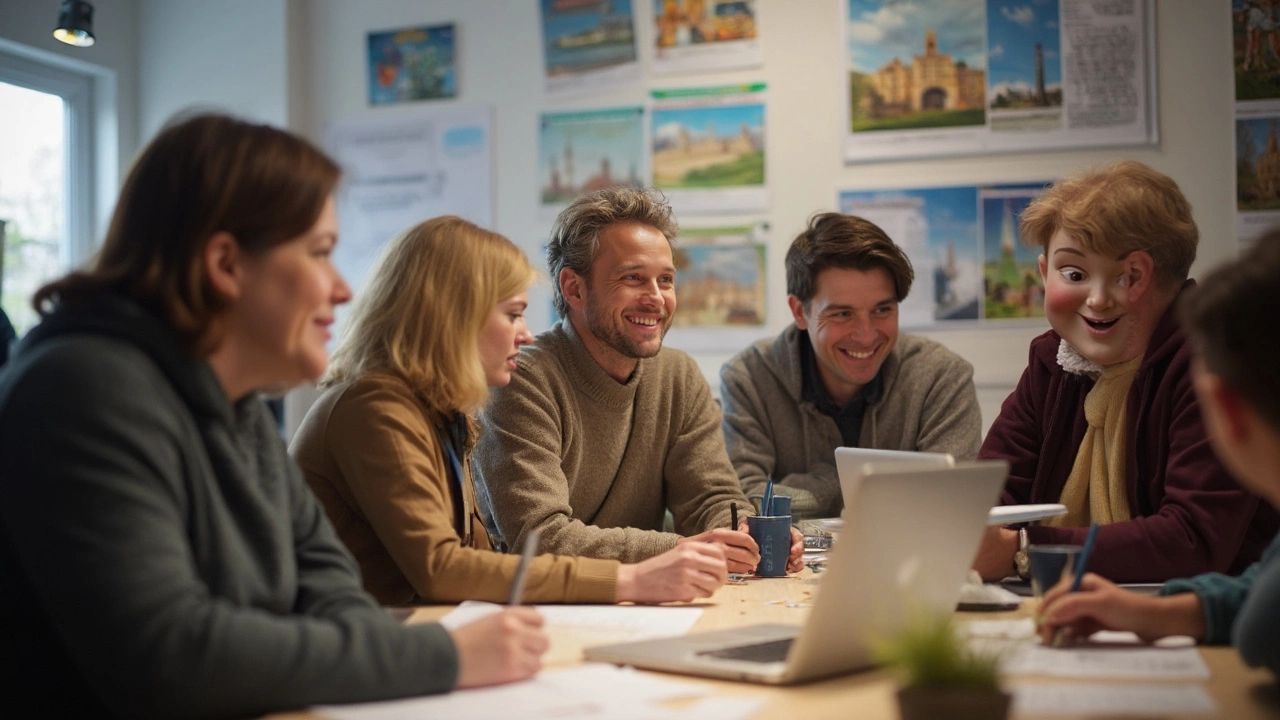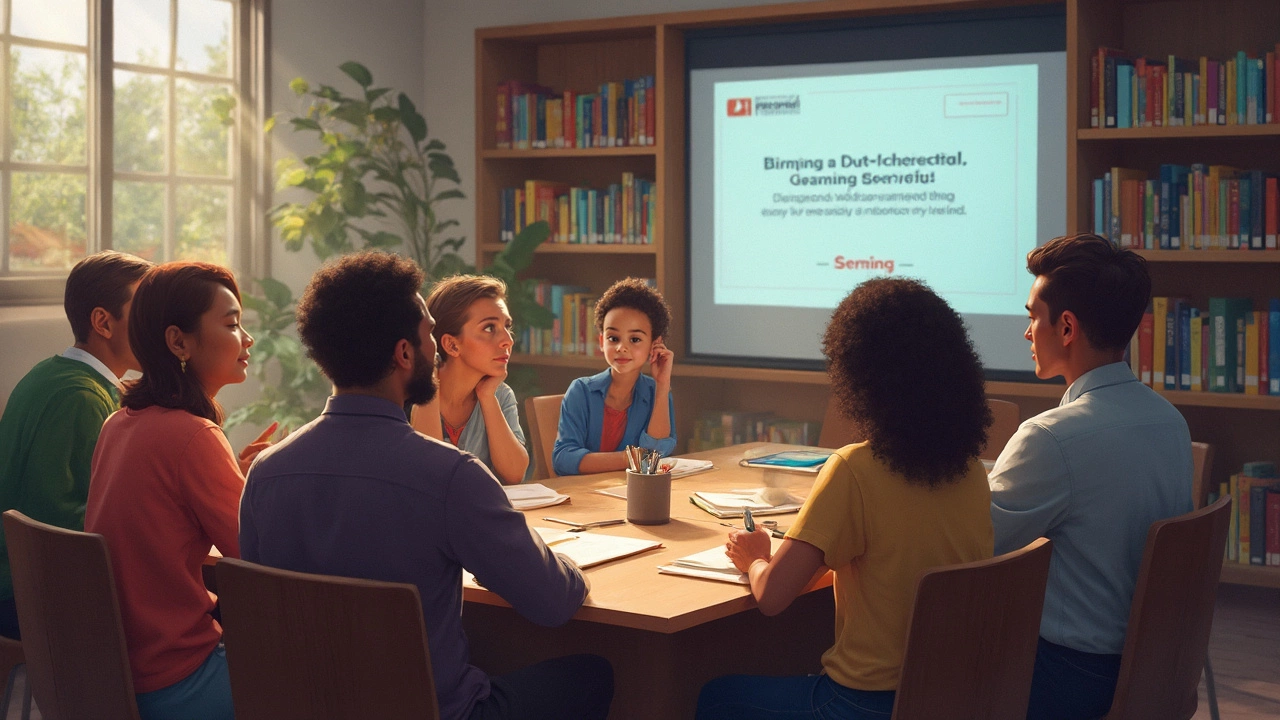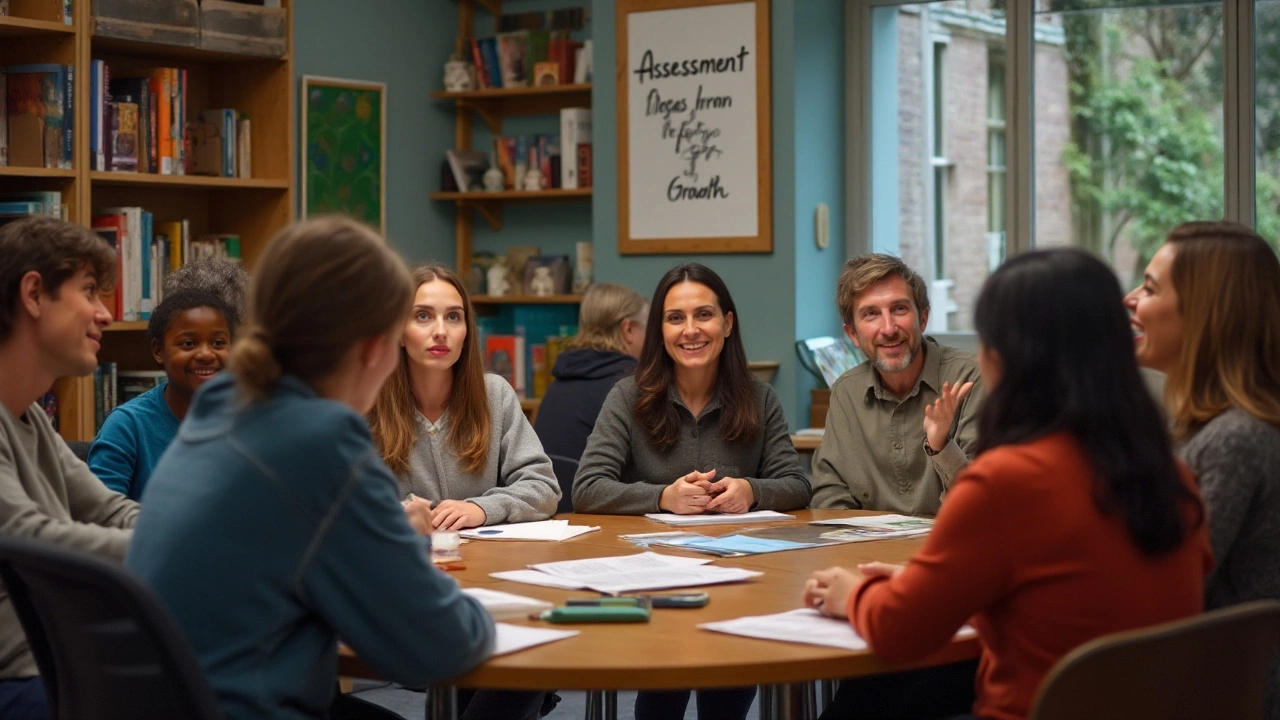Adult Learning Made Simple: What Works and How to Start Today
If you’re over 18 and feeling the itch to learn something new, you’re in good company. Adults across the UK are picking up fresh skills, switching careers, and just having fun with learning. The big myth is that learning is only for kids – that’s not true. The right approach, a bit of structure, and the right mindset can turn any adult into a confident learner.
Know Your Learning Style
Most adults fit into one of three learning styles: doing, listening, and talking. Learning by doing means you grasp concepts best when you practice them – think hands‑on workshops or real‑world projects. Learning by listening works when you absorb information through podcasts, videos, or lectures. Learning by talking thrives on discussion, study groups, or teaching others what you’ve just learned.
Pick the style that feels natural and try to match your study habits to it. If you love building things, sign up for a DIY course. If you’re a podcast fan, queue up educational series on skills you want to master. Mix and match – most people benefit from a blend of all three.
Set Tiny Goals and Celebrate Wins
Big goals can feel overwhelming, so break them down. Want to improve your Excel skills? Start with learning how to format a table, then move to pivot tables, and finally build a dashboard. Each mini‑goal should take no more than a week. When you finish, give yourself a small reward – a coffee break, a short walk, or a quick game.
Tracking progress keeps you motivated. Use a simple notebook, a spreadsheet, or a habit‑tracking app. Write down what you did, how long it took, and what you learned. Seeing a list of completed tasks is surprisingly satisfying.
Another practical tip is to schedule learning like any other appointment. Put a 30‑minute block on your calendar each day. Treat that time as non‑negotiable. Consistency beats intensity – a half‑hour daily beats a marathon session once a month.
Don’t forget to use free resources. The UK government’s National Careers Service offers free online courses, and sites like FutureLearn and OpenLearn provide university‑level material at no cost. Local libraries often host free workshops on digital skills, budgeting, or creative writing.
When you hit a roadblock, change the format. Stuck on a concept? Watch a YouTube explainer, then discuss it with a friend or post a question in a community forum. Teaching what you just learned cements the knowledge and highlights any gaps.
Finally, remember why you started. Whether it’s a promotion, a new hobby, or just the joy of mastering something, keep that reason in mind. Write it down on a sticky note and place it where you study daily. It’ll remind you when motivation dips.
Adult learning isn’t a sprint; it’s a marathon you can shape to fit your life. Pick the style that clicks, set bite‑sized goals, use free resources, and stay consistent. Before long, you’ll notice new confidence, fresh opportunities, and maybe even a new passion you never expected.

What Is the Value of Adult Learning? Real Benefits for Work, Life, and Future
- by Eliza Fairweather
- on 25 Dec 2025
Adult learning isn't about going back to school-it's about growing forward. Discover how learning new skills boosts your pay, keeps your mind sharp, and rebuilds confidence at any age.

What is the Honey and Mumford theory? Understanding learning styles in adult education
- by Eliza Fairweather
- on 16 Nov 2025
The Honey and Mumford theory identifies four learning styles-Activist, Reflector, Theorist, and Pragmatist-that explain how adults absorb and apply new knowledge. It helps learners and trainers match methods to preferences for better results.

How Adults Learn Most Effectively: Science-Backed Strategies That Actually Work
- by Eliza Fairweather
- on 15 Nov 2025
Adults learn best when they connect new skills to real-life experience, practice in short bursts, get immediate feedback, and learn with others. Science-backed strategies that actually work for busy adults.

What Is Adult Learning? Understanding Lifelong Education Made Easy
- by Eliza Fairweather
- on 5 Jul 2025
Curious about adult learning? Discover what it really means, why it matters, and how grown-ups actually learn best—with expert tips and real-life insights.

Adult Education Concepts: Key Approaches Explained
- by Eliza Fairweather
- on 7 May 2025
Adult education uses concepts like andragogy, transformative learning, and experiential learning to help adults pick up new skills or change their lives. This article breaks down the main theories behind how adults learn differently from kids. Expect practical tips, fun facts, and clear examples that make sense for real life. You'll understand why adult classes are nothing like what you remembered from grade school. All the strategies covered here really matter if you want to boost your teaching or learning as an adult.

Understanding Adult Learning: What Really Sets It Apart
- by Eliza Fairweather
- on 16 Apr 2025
Adult learning is distinct from traditional education, focusing more on practical and self-directed approaches. It recognizes that adults bring prior experiences and knowledge to the table, influencing their learning style. This article explores various forms of adult learning, highlighting critical differences from childhood education, and providing useful tips for anyone interested in pursuing or enhancing their learning journey.

Why Learning Gets Tougher with Age
- by Eliza Fairweather
- on 4 Apr 2025
As we get older, our brain faces new challenges that make learning new things harder. This article explores why this happens and offers tips to keep your mind sharp. Discover how changes in the brain impact learning and how lifestyle choices can help you stay mentally active.

Motivating Adult Learners to Thrive in Education
- by Eliza Fairweather
- on 7 Feb 2025
Motivating adult learners can be a challenge, but understanding their unique needs makes a big difference. Unlike younger students, adults bring prior knowledge and life experiences that shape their learning. By creating relevant and practical learning experiences, educators can engage adults effectively. Offering flexible and supportive learning environments also plays a crucial role in keeping them motivated.

Understanding the 7 Effective Principles of Adult Learning
- by Eliza Fairweather
- on 26 Jan 2025
Adult learning takes center stage in various aspects of personal and professional life today more than ever. Understanding the rules that guide how adults learn can enhance teaching methods and improve learning experiences. These principles ensure that learning is engaging, relevant, and applicable to real-life situations. Adults often bring rich, diverse life experiences to the classroom, which can be leveraged for effective learning. By focusing on self-directed, experiential, and goal-oriented approaches, the educational journey for adults can become fulfilling and impactful.

Understanding the Three Pillars of Adult Learning for Effective Education
- by Eliza Fairweather
- on 19 Jan 2025
Adult learning is a fascinating field driven by unique techniques and methodologies. This article explores the three pillars crucial to this educational process. These pillars are essential for creating an effective and engaging learning environment for adults. With a focus on practical implications, this exploration provides insights into how these elements support adult learners in acquiring new knowledge and skills.

Unlocking Potential: The Four A's of Adult Education
- by Eliza Fairweather
- on 18 Jan 2025
Adult learning is a dynamic field vital for personal and professional growth. This article delves into the four A's that form the cornerstone of effective adult learning: Assessment, Accessibility, Application, and Adaptation. Each of these elements plays a unique role in facilitating meaningful educational experiences for adults. By understanding and leveraging these A's, educators and learners alike can enhance the learning process, making it more engaging and effective.

Understanding the 70 20 10 Model for Effective Adult Learning
- by Eliza Fairweather
- on 12 Jan 2025
The 70 20 10 model of adult learning breaks down learning experiences into three categories: experiential, social, and formal education. This theory emphasizes that the majority of learning, 70%, comes from hands-on experiences, 20% from social interactions, and 10% through formal education. It highlights the importance of workplace learning and peer interactions, encouraging adults to engage with the environment for optimal learning. This approach is beneficial in both personal and professional development contexts.
